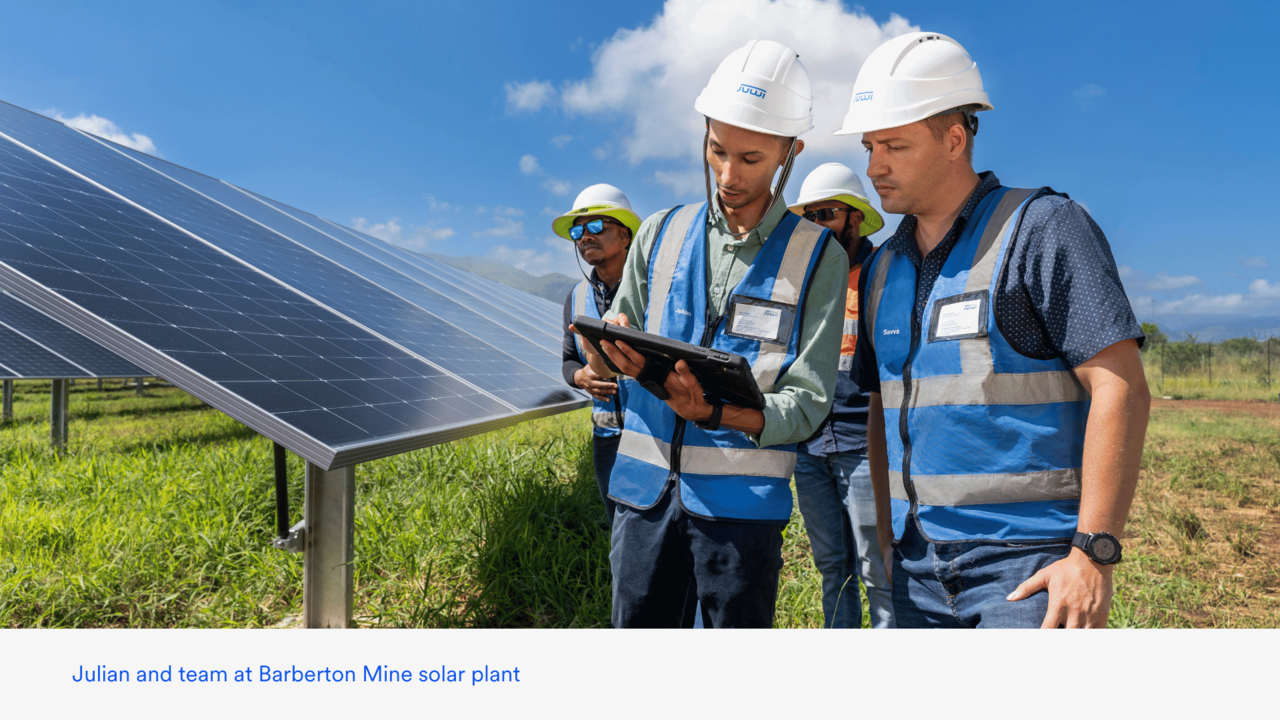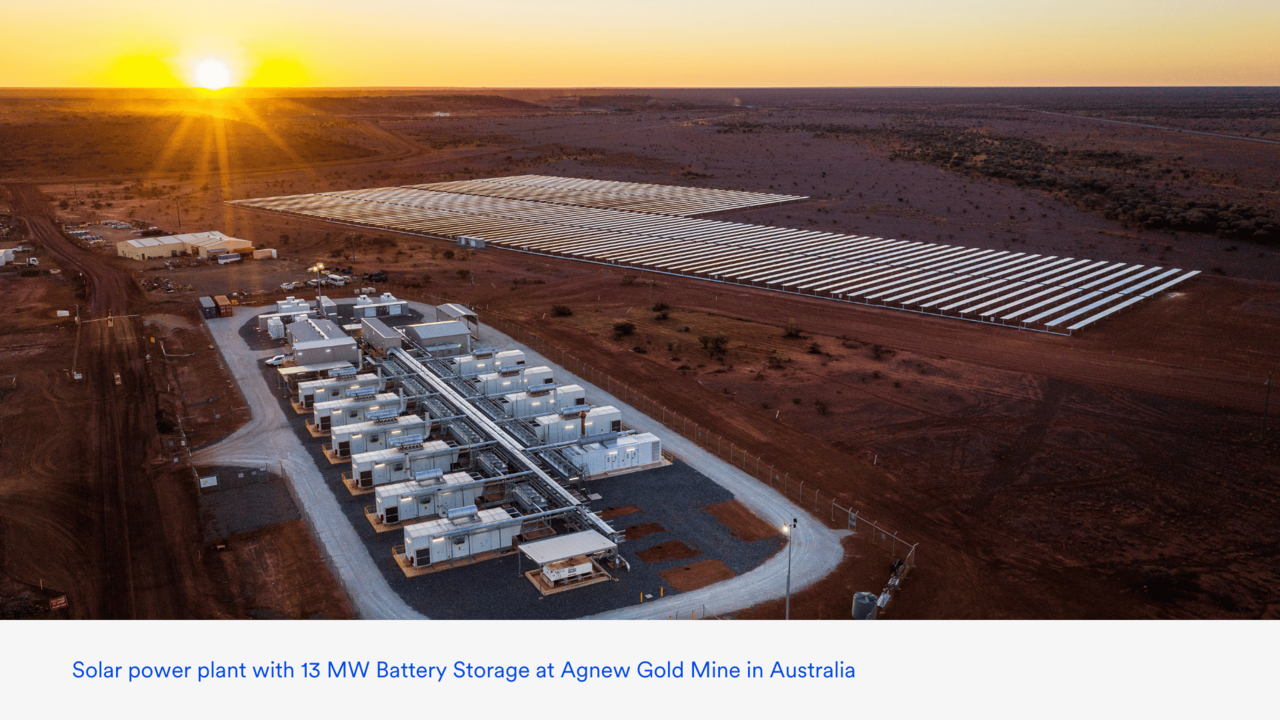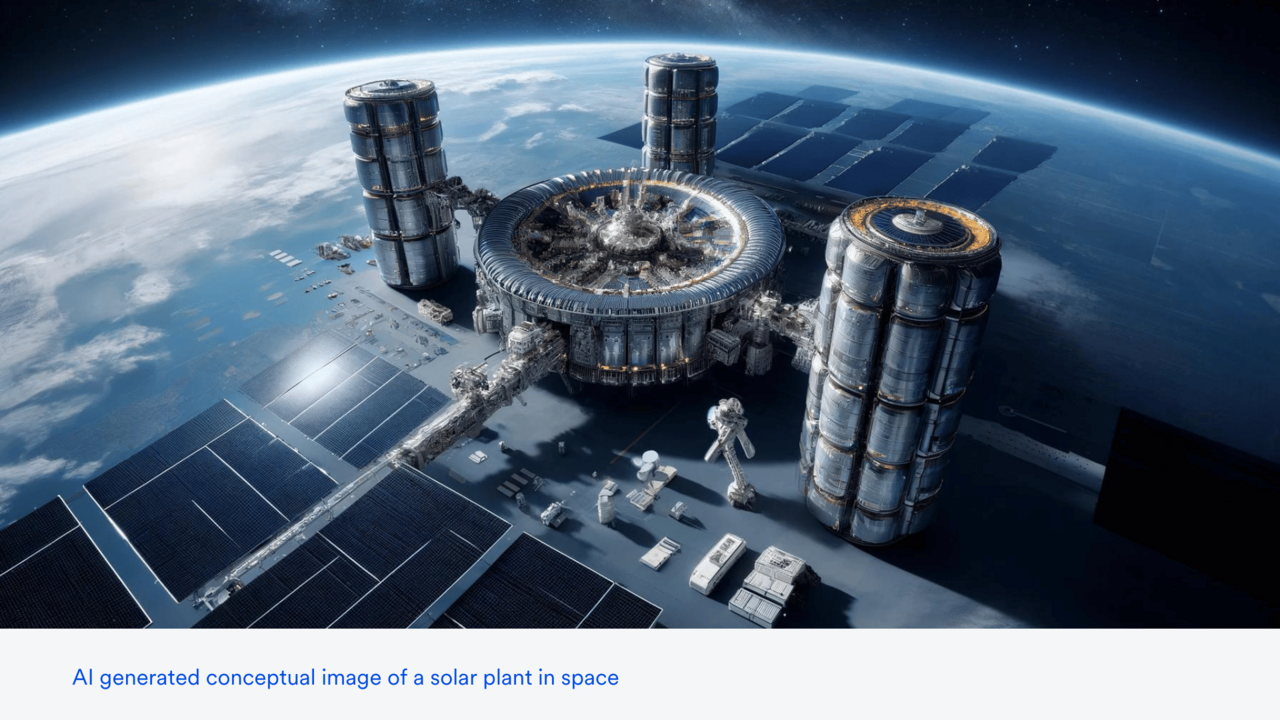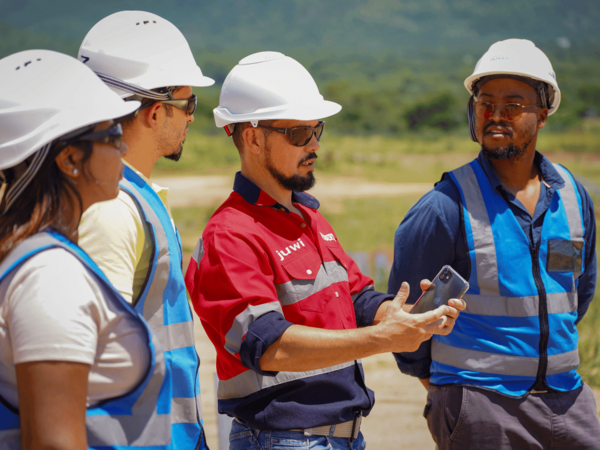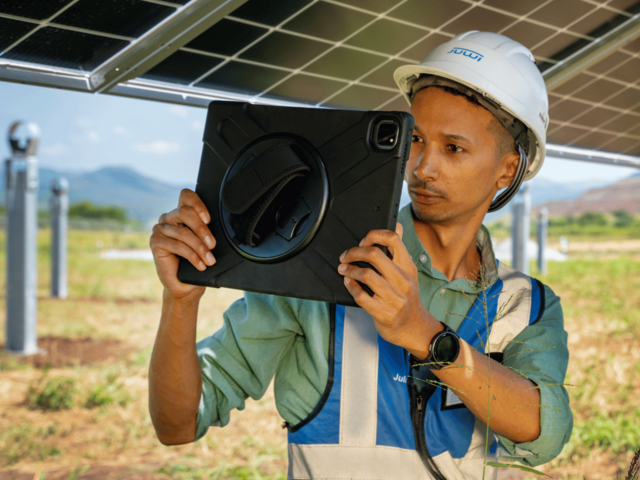
People in energy: Julian Daniels
How did you come to be an engineer in renewable energy?
I chose engineering at Stellenbosch University because I wanted to create tangible things that make a difference in people's lives. As the chairperson of Engineers Without Borders (EWB) at the Stellenbosch Chapter, I saw firsthand how engineering could uplift communities.
As part of EWB, I founded and led the “Solar Gen Project”, which was my first venture into renewable energy. After being confronted by the challenges students in low income areas face, we created a programme at the local high school to help students build their own portable solar generators. The project not only provided them with a self-generating power source for studying at night but also showed them the potential of practical engineering.
Soon after I graduated I started working on industrial scale energy projects. Think of electrical engineering as the brain and blood vessels of a project — it's complex and absolutely critical. That's what hooked me. After getting my hands dirty in the field for a while, I went back to school for my Masters in Smart Grid Technology, ready to dive deeper into renewable and sustainable energy. The energy market keeps growing and evolving, pushing us to decarbonise our grid.
What's a typical day like as a Lead Project Engineer at JUWI?
Joining JUWI was a game changer for me. As a Project Engineer, I’m the technical interface for internal teams like Procurement, Legal, and Environmental and external stakeholders like OEMs, clients, and subcontractors. Every day brings new challenges. One day I'm designing electrical systems, the next I'm on-site with construction crews, or hashing out issues with the engineering team. It's a blend of coordination, technical problem-solving, and making sure we stay on track with quality and regulatory standards. The only constant is that there’s never a dull moment!
Tell us a bit about South Africa’s energy landscape and what you see happening
South Africa's energy mix is currently heavily reliant on fossil fuels, with renewable energy making up about 12% of our generation capacity. Despite facing challenges like grid access and stability, there's a dynamic shift happening. With key policy updates and cost-effective advancements in renewable technologies, I'm optimistic about overcoming these hurdles for a more diverse and stable energy future.
What’s been your most challenging project so far?
I am currently the Lead Engineer for the Barberton PV project, a 10.5 MWp solar PV plant at PAR’s Fairview mine. As my first project as Lead Engineer, it will always have a special place for me but wow it’s been a steep learning curve!
The project is built on a brownfields site previously used to store tailings (the leftover materials from processing ore). During construction we were faced with many obstacles that required redesign and optimization due to unsuitable ground conditions and soil contamination.
The need to adapt and optimize designs mid-construction happens often due to unforeseen circumstances but it’s always challenging as everything is interconnected. One change can have a knock-on effect on multiple other areas. Luckily JUWI has a fantastic multidisciplinary team that ensured we got all the kinks worked out.
What new advancements are happening in the tech space that you’re excited about?
Battery Energy Storage Systems (BESS) and its applications in utility-scale power systems is an exciting technology segment. It is a market that is growing increasingly important with advancements and developments in various chemistries.
Grid stability is becoming a key focus for grid operators with the addition of more Variable Renewable Energy (VRE) sources such as solar PV and wind generation being added to our electrical networks. BESS offers many benefits linked to the cost optimization of energy such as energy arbitrage, but they can also play an important role in ancillary services and energy management services that would strengthen our electrical networks.
Speaking of tech, if we were living in the Star Trek era, what would renewable energy look like?
We’d probably have something crazy like solar power stations in space. Ignoring all the technical problems of the real world, solar panels in space would mean better power output as we’d avoid the clouds (and of course it would make for really fun site visits!).
Ok last question. What advice do you have for aspiring young engineers?
Renewable energy is still fresh in South Africa, and there's plenty of room to make your mark.
In my experience having a good mentor can really change your career. My past lead engineer and mentor Holiday Kdada taught me to trust my instincts, tackle issues head-on, and think creatively.
Apart from finding a good mentor I’d encourage junior engineers to show initiative, be curious and don’t be afraid to ask questions. You will be introduced to many new terms and concepts in meetings. Write them down, research them later, and try to connect the puzzle. Finally, it’s critical to get your head out of the numbers sometimes and work on your interpersonal skills. Engineering is 100% a team sport so communication and your ability to work well with others can make or break a project.



